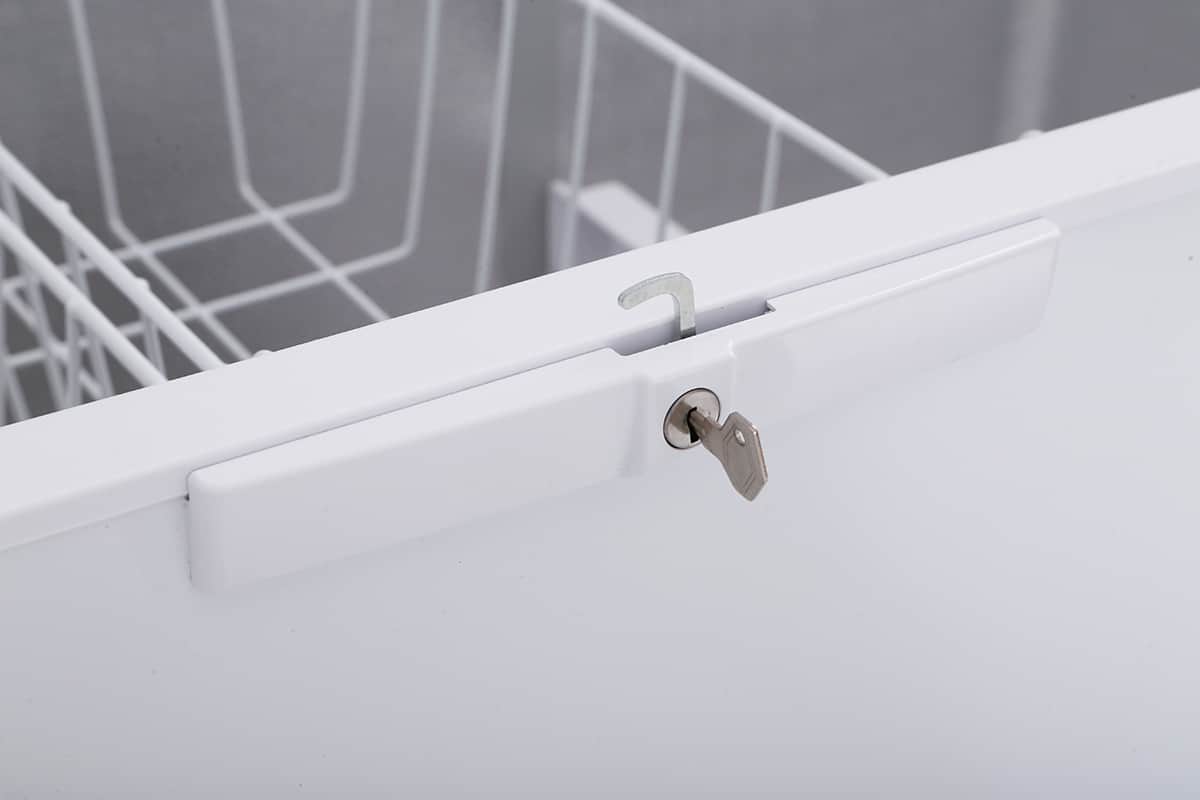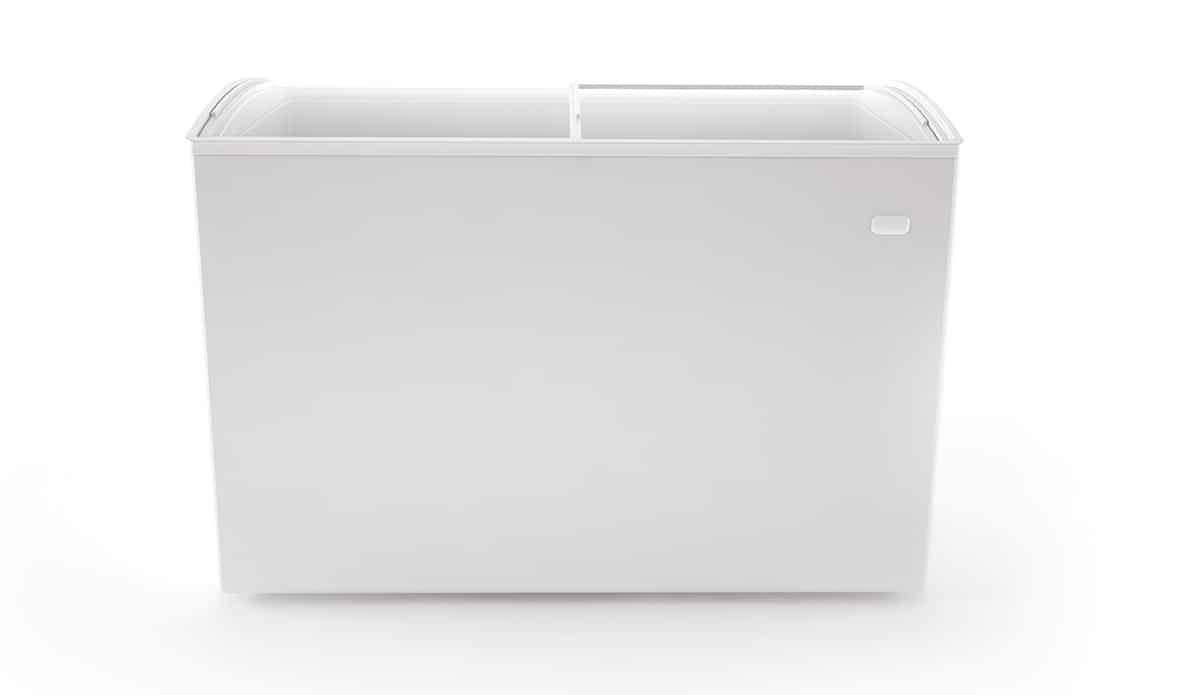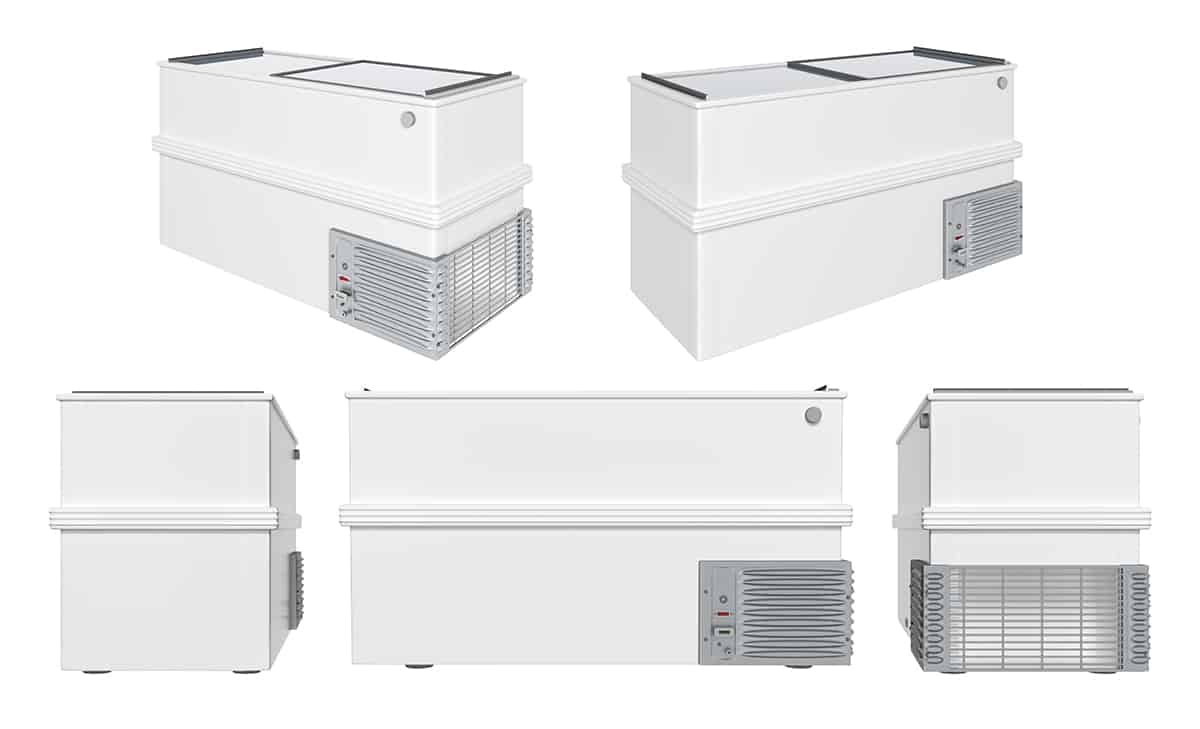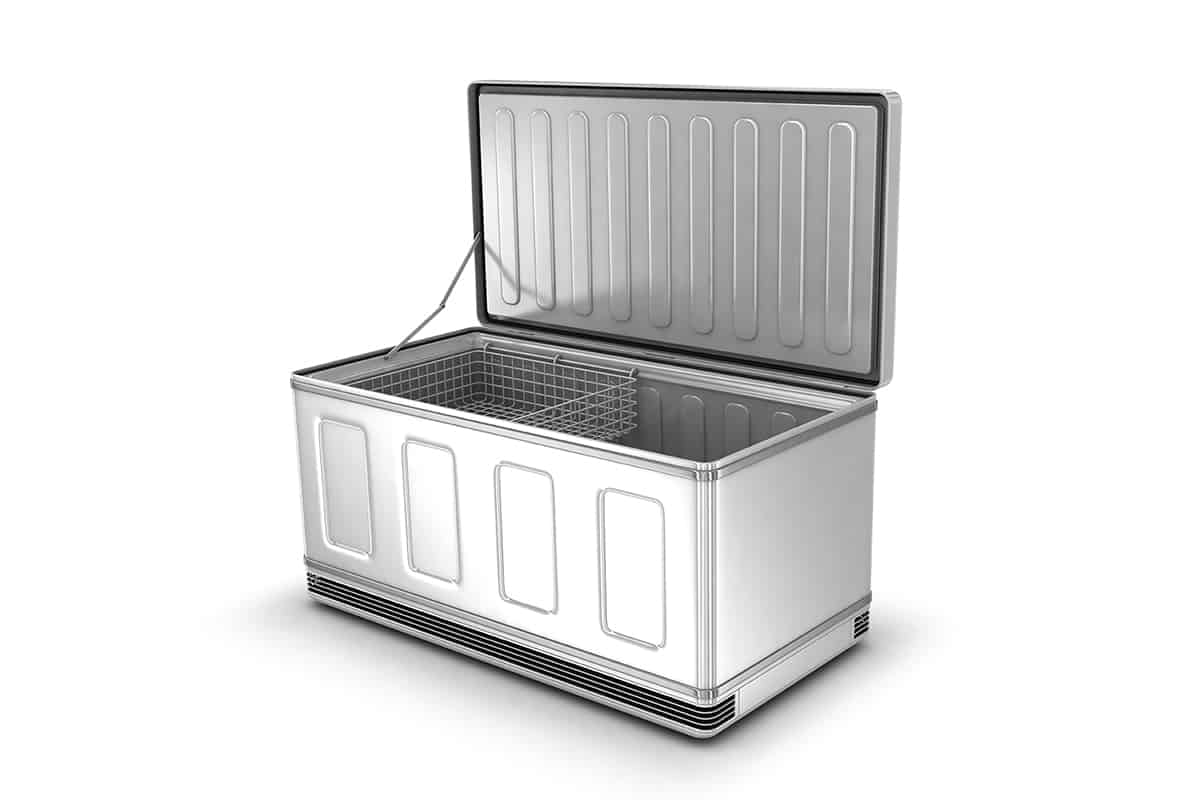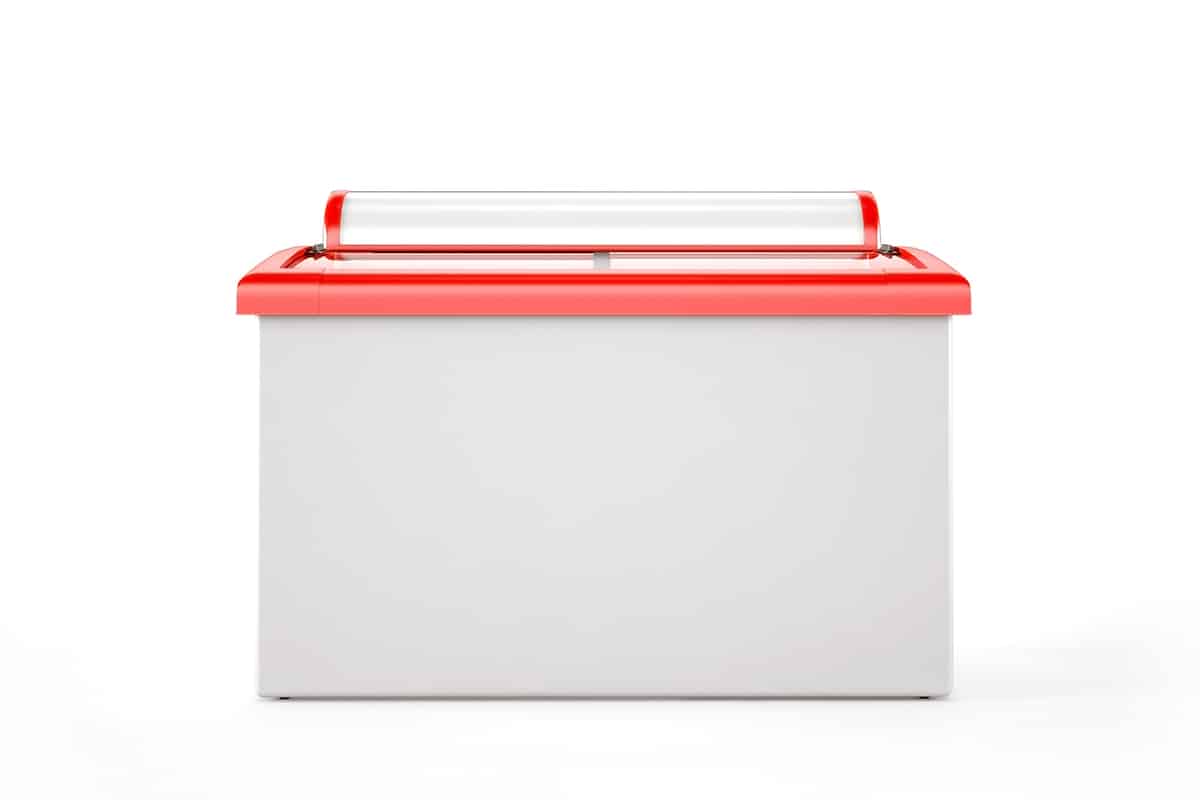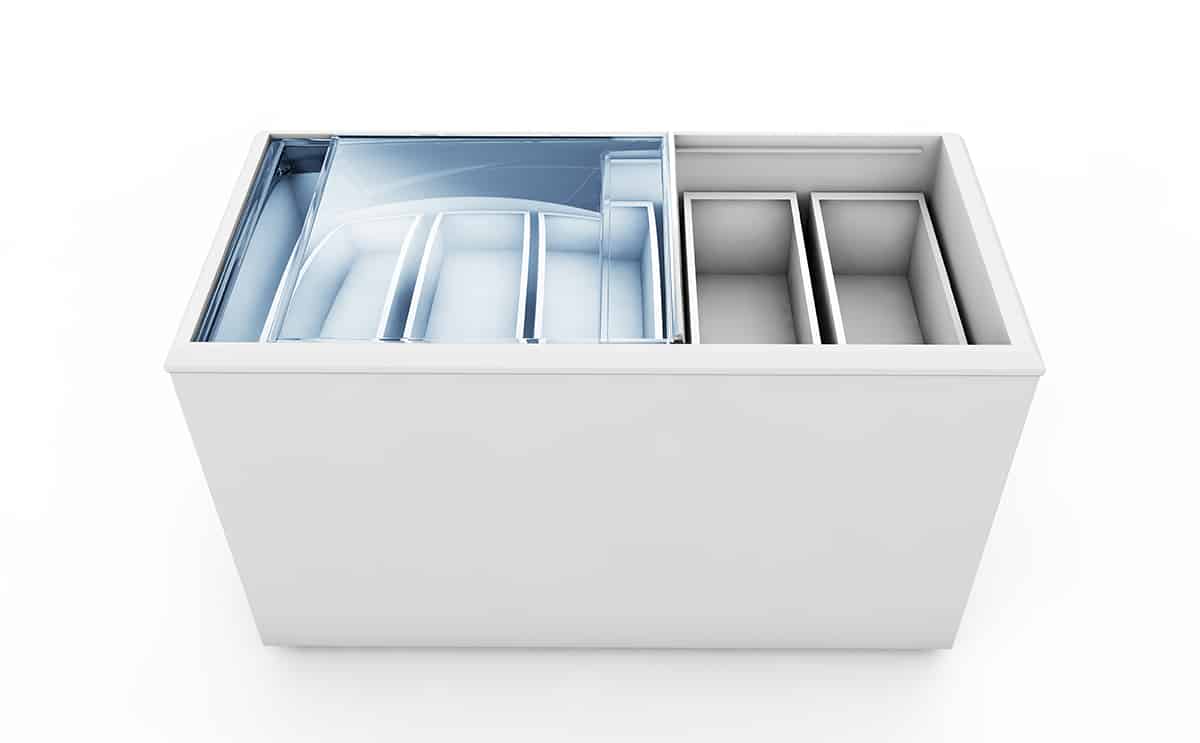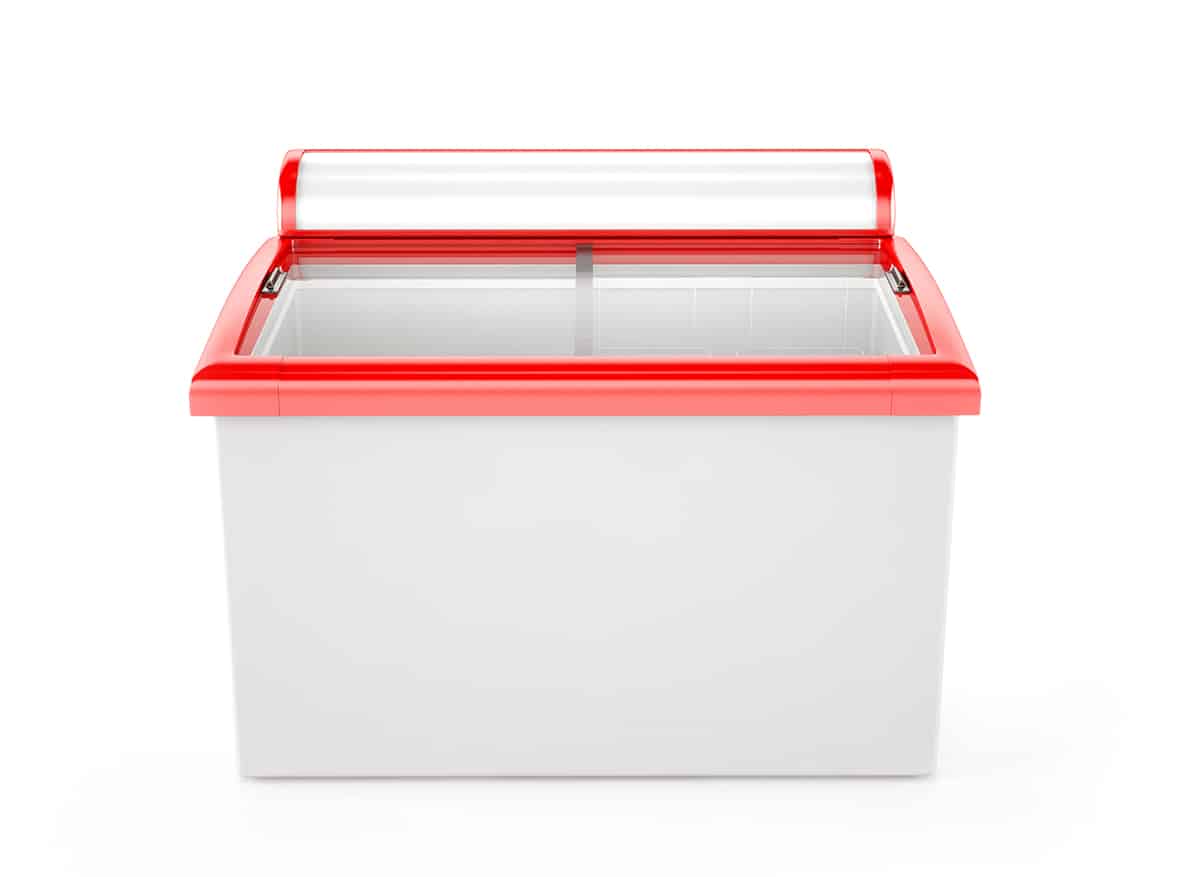Chest freezers are especially useful for big families or those who like to buy food in bulk. However, sometimes chest freezers can make strange noises, like buzzing sounds, which can be annoying or even a sign that something isn’t working right.
The most common causes of a buzzing chest freezer are as follows:
- Compressor issues
- Loose or damaged parts
- Blocked air vents
- Frost buildup
- Electrical issues
In this article, we’ll explore the common reasons behind the buzzing noise in your chest freezer and provide you with solutions to fix the problem.
The Basics of a Chest Freezer
Before we begin, let’s first familiarize ourselves with some of the most important parts of a chest freezer.
Compressor
The compressor is like the heart of your chest freezer. It pumps refrigerant, a special cooling substance, throughout the freezer. The compressor can sometimes cause buzzing noises if it’s not working right, but it’s best to have a professional look at it if you think it’s the problem.
Condenser
The condenser is a series of coils on the outside of your chest freezer. It helps release heat from the refrigerant into the air outside the freezer. If the condenser coils are dirty, your freezer might work harder and make more noise. You can clean the coils with a brush or vacuum to help reduce the noise.
Evaporator
The evaporator is another set of coils, but it’s located inside the chest freezer. Its job is to absorb heat from inside the freezer and transfer it to the refrigerant. If there’s too much frost buildup around the evaporator, it can cause the freezer to work harder and make buzzing noises. Defrosting the freezer can help fix this issue.
Thermostat
The thermostat is responsible for keeping the chest freezer at the right temperature. It senses the temperature inside the freezer and tells the compressor when to turn on or off. If the thermostat isn’t working properly, the freezer might run constantly and make more noise. Replacing the thermostat can help solve this problem.
Fan Motor
The fan motor helps circulate cold air inside the chest freezer. If the fan motor is damaged or blocked, it might make buzzing noises as it tries to work. Make sure the fan motor is clear of any obstructions and replace it if it’s damaged.
Common Causes of Buzzing Noises
In this section, we will talk about some of the usual reasons your chest freezer might be making a buzzing noise.
1. Compressor issues
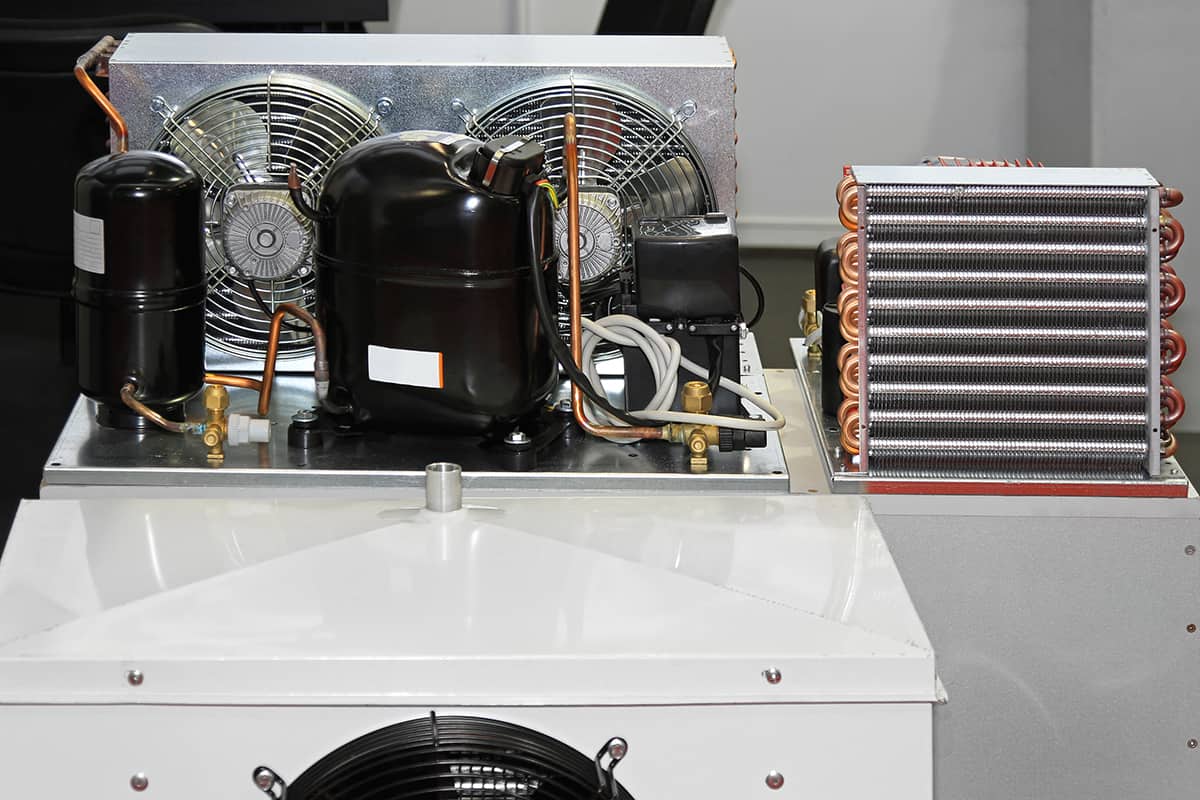
The compressor is a vital part of your chest freezer. Its job is to pump refrigerant, a special cooling substance, through the freezer. Sometimes, the compressor can make buzzing noises when it’s working harder than usual, or if it’s not working correctly. This can happen when there’s too much refrigerant, not enough refrigerant, or if the compressor is wearing out.
2. Loose or damaged parts
Another reason your chest freezer could be making a buzzing noise is that some parts inside might be loose or damaged. For example, the fan motor, which helps circulate cold air, might have a loose or bent blade. This can cause it to hit other parts and create a buzzing sound.
3. Blocked air vents
Your chest freezer has air vents to help circulate the cold air. If these vents get blocked by ice or other items, it can cause the fan motor to work harder and make a buzzing noise. Make sure the vents are clear by removing any ice build-up or rearranging the items inside the freezer.
4. Frost buildup
Frost can build up inside your chest freezer, especially if the door isn’t sealing properly or if it’s overfilled. When there’s too much frost, it can cause the freezer’s parts to work harder and create a buzzing sound.
5. Electrical issues
Sometimes, a buzzing noise can come from electrical problems. For instance, if the power cord is damaged or if there’s a loose connection inside the freezer, it might cause a buzzing sound.
Fixes for a Buzzing Chest Freezer
Now that we have a feel for what can cause a buzzing sound from your chest freezer, we should have an easier time figuring out how to fix the problem.
1. Adjusting the freezer’s position
Sometimes, the buzzing noise comes from the chest freezer being on an uneven surface or touching a wall. To fix this, make sure the freezer is on a flat, level surface and has some space between it and any walls or objects. You can use a level tool to check if the surface is even and adjust the freezer’s legs if needed.
2. Cleaning and maintaining the freezer
Clean the condenser coils—Use a brush or vacuum to remove dirt and dust from the coils. This helps the freezer run more efficiently and quietly.
- Defrost the freezer—If there’s too much frost buildup, turn off the freezer, empty it, and let the ice melt. Put a towel on the floor to catch any water. After the frost is gone, turn the freezer back on and make sure the door seals properly.
- Check the door seal—Make sure the door seal is clean and not damaged. If it’s dirty, wipe it clean with a damp cloth. If it’s damaged, you might need to replace it.
3. Replacing worn-out parts
If you find any damaged or worn-out parts in your chest freezer, like the fan motor or thermostat, you might need to replace them. You can find replacement parts online or at a local appliance store. Make sure to get the right part for your specific freezer model. If you’re unsure how to replace the part, it’s best to call a professional.
4. Dealing with frost buildup
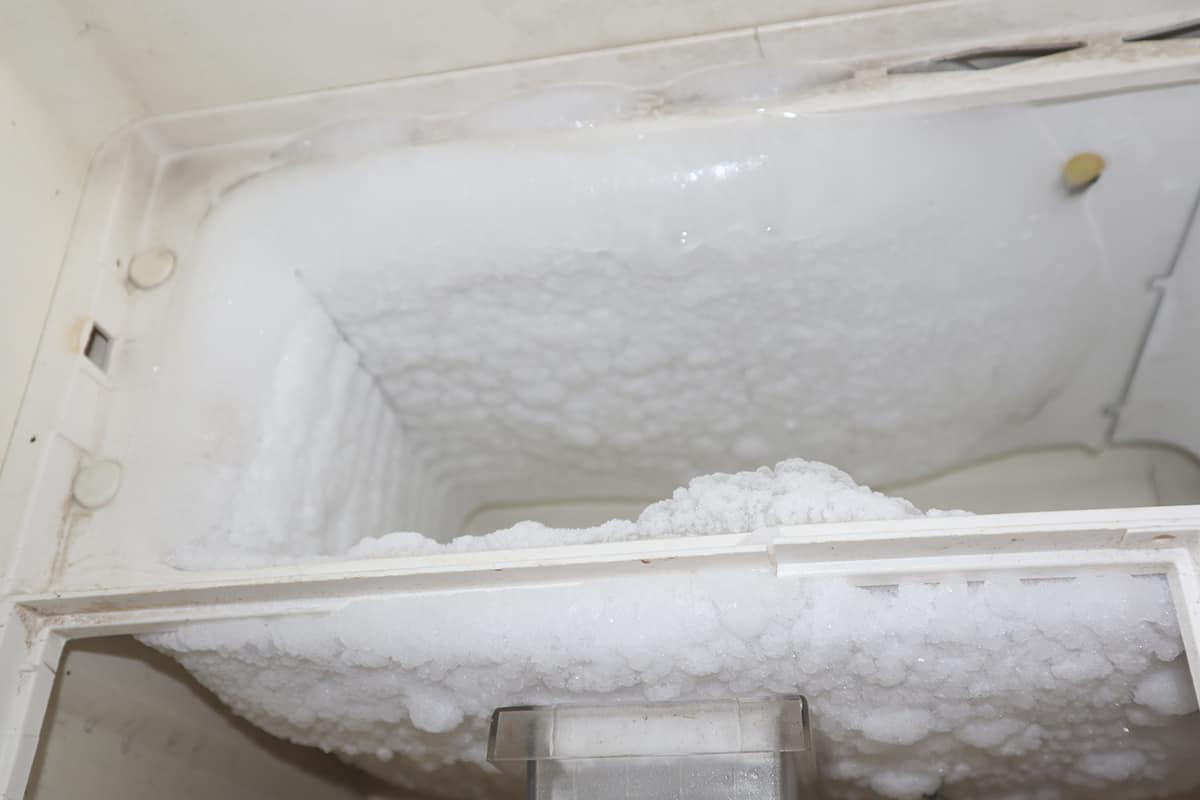
As mentioned earlier, frost buildup can cause the freezer to work harder and make buzzing noises. To prevent frost buildup, follow these tips:
5. Inspecting and repairing electrical connections
Electrical issues, like a damaged power cord or loose internal wiring, can cause buzzing noises in your chest freezer. To check for electrical problems, unplug the freezer and inspect the power cord for damage. If you find any issues, you might need to replace the cord or have a professional fix the internal wiring. Be cautious when dealing with electricity, as it can be dangerous.
FAQs
1. How do I know if my chest freezer needs to be replaced?
Deciding when to replace your chest freezer can be tricky. Here are some signs that it might be time for a new one:
- Age—If your chest freezer is more than 10-15 years old, it might not be as efficient as newer models and could cost you more in energy bills.
- Frequent repairs—If you’re constantly fixing your chest freezer or if a repair is too expensive, it might be more cost-effective to buy a new one.
- Rising energy bills—If your energy bills keep going up, it could be because your chest freezer is using more power to keep food frozen. A new, energy-efficient model could save you money in the long run.
- Inconsistent temperatures—If your chest freezer isn’t keeping food at a consistent temperature or if it’s constantly running, it might be time for a replacement.
2. Can a buzzing noise damage my chest freezer?
A buzzing noise itself might not cause damage to your chest freezer, but it can be a sign of an underlying issue. If the cause of the noise is a worn-out part, blocked vent, or electrical problem, it can lead to more serious issues if not fixed promptly.
For example, a damaged compressor can cause your chest freezer to stop working and lead to food spoilage. Addressing the buzzing noise and fixing the underlying problem can help prevent damage and keep your chest freezer running smoothly.
3. Are there any safety concerns with a buzzing chest freezer?
While a buzzing noise can be annoying, it’s usually not dangerous. However, if the noise is caused by an electrical problem, like a damaged power cord or loose internal wiring, there can be safety risks.
Electricity can cause shocks or even fires if not handled properly. If you suspect an electrical issue, it’s best to unplug the chest freezer and call a professional to fix it. Always use caution when dealing with electricity.
4. Can I use my chest freezer in an unheated garage or outdoor space?
Using your chest freezer outdoor space or in an unheated garage is not very common. Most chest freezers are designed to work in specific temperature ranges, and extreme heat or cold can affect their performance. Here are some things to consider:
- Temperature—If the temperature in your garage or outdoor space drops below freezing or rises above 90°F, it can cause your chest freezer to work harder, use more energy, or even stop working.
- Moisture—Humidity and moisture in outdoor spaces can lead to rust, mold, and other issues that can damage your chest freezer.
- Insulation—If your chest freezer is in a garage, make sure the space is insulated to help maintain a stable temperature.
